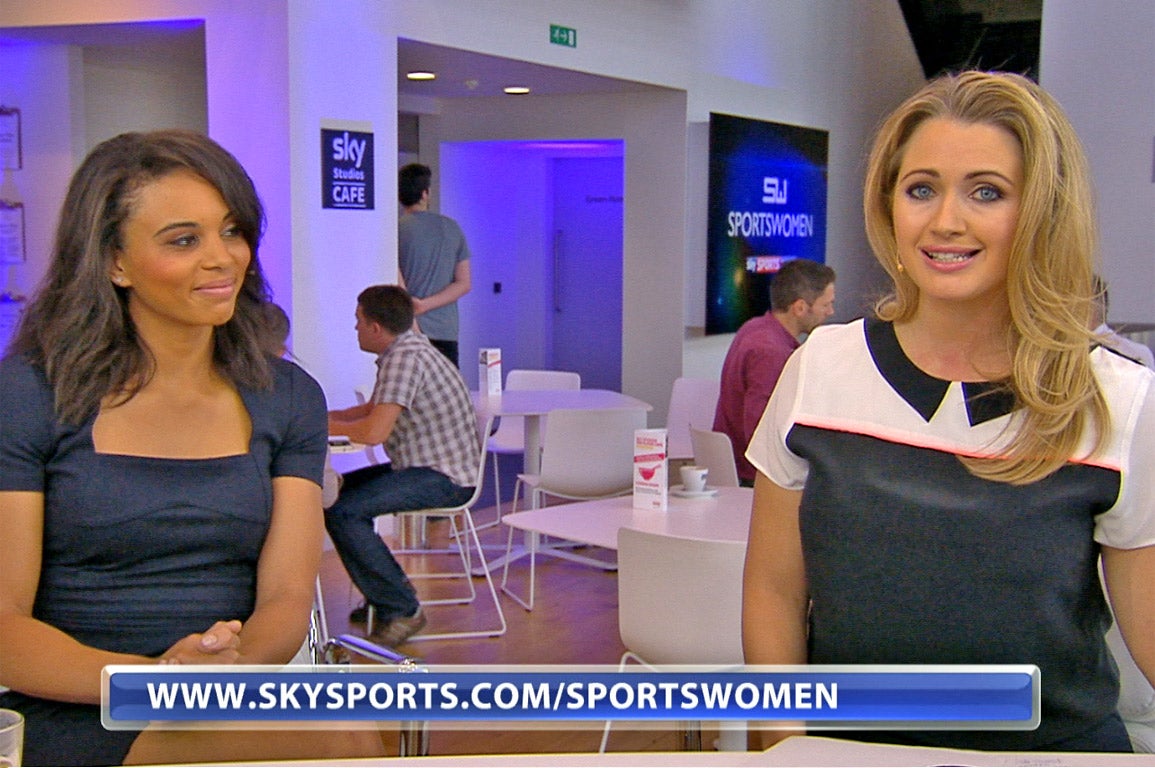Matt Butler: 'Sportswomen' offers fascinating insight – shame about the slot on Sky Sports
View From the Sofa: It was a worthwhile counter to the wall-to-wall blokes usually seen on Sky Sports

Your support helps us to tell the story
From reproductive rights to climate change to Big Tech, The Independent is on the ground when the story is developing. Whether it's investigating the financials of Elon Musk's pro-Trump PAC or producing our latest documentary, 'The A Word', which shines a light on the American women fighting for reproductive rights, we know how important it is to parse out the facts from the messaging.
At such a critical moment in US history, we need reporters on the ground. Your donation allows us to keep sending journalists to speak to both sides of the story.
The Independent is trusted by Americans across the entire political spectrum. And unlike many other quality news outlets, we choose not to lock Americans out of our reporting and analysis with paywalls. We believe quality journalism should be available to everyone, paid for by those who can afford it.
Your support makes all the difference.There was a short but uncomfortable pause midway through Sportswomen, Sky Sports' new show focusing on, you guessed it, women in sport. Hayley McQueen, the host, had asked her guest in the cafe-cum-studio, Louise Hazel, how female athletes can get better coverage. The question was in the context of a discussion on a piece in a Scottish newspaper saying Fir Park should be "burnt to the ground" to cleanse itself of the Scotland Women's football match against Bosnia.
Hazel, a former heptathlete, said such misguided articles – tongue-in-cheek or otherwise – are "counter-productive" and the best way to change attitudes is to get "more coverage on television".
Which was a valid point. Except Hazel was speaking on a show flying the flag for women's sport... that was broadcast in the dead zone of 10.30am on a Tuesday morning. McQueen changed the direction of the discussion rather quickly.
It was a shame that Sportswomen was shunted into the time slot usually reserved for the umpteenth repeat of Homes Under the Bargain Attic or whatever, because the show was interesting, informative and, at times, hard-hitting. Discounting the argument that if sports channels marketed both genders' throwing, running, kicking and punching as "sport" then we would not have the need for shows like these, this was a worthwhile counter to the wall-to-wall blokes usually seen on Sky.
But swathes of their target audience would not have seen it: according to Sport England figures, women in full-time employment are most likely to play sport. And hence miss Sportswomen.
They would have missed out on a frankly harrowing piece from Jane Dougall on female athletes and their struggles with body image – partly brought about from the pressures of landing sponsorship. Some figures were shocking: a single half a per cent of sports sponsorship money goes to female athletes and Hazel said securing a chunk of that cash "depended on how I looked".
Dame Tanni Grey-Thompson, who has won more marathons and Paralympic medals than you or I have had hot dinners, even revealed: "I was told I would do better at sponsorship if I had long hair." I can't see Wayne Rooney being told that.
Andy Sutherden, head of sports and global practice director at Hill and Knowlton – billed as a "brand manager" on the show – was brave to show his face, especially after he said that achievements only went so far when it came to sponsorship and that "glamour sells".
Given this pressure, it was sadly no surprise for Dougall to reveal that 45 per cent of female athletes have had some form of eating disorder. To give some perspective, 19 per cent of male athletes have had one.
Allie Outram and Chrissie Wellington, a former cross-country runner and four-time Ironman world champion respectively, had battled with eating disorders. Outram said that at one stage a doctor told her she had only a week to live as her family took her four-and-a-half-stone frame to hospital, while Wellington said her World Championship victories had finally allowed her to love her body – "not in a narcissistic way," she hastily added.
It was eye-opening stuff, which raised a lot of questions – some of which, such as how to change sponsors' outlooks, were discussed between Hazel and McQueen.
The second part of the half-hour show was fluffier, with a piece on the Great Britain curling team – incidentally, the first members of Team GB to be picked for the 2014 Winter Olympics. Who knew they did weight training and had tailored fitness regimes? Well you do now. As did those who happened to be watching telly at 10.30am.
Join our commenting forum
Join thought-provoking conversations, follow other Independent readers and see their replies
Comments